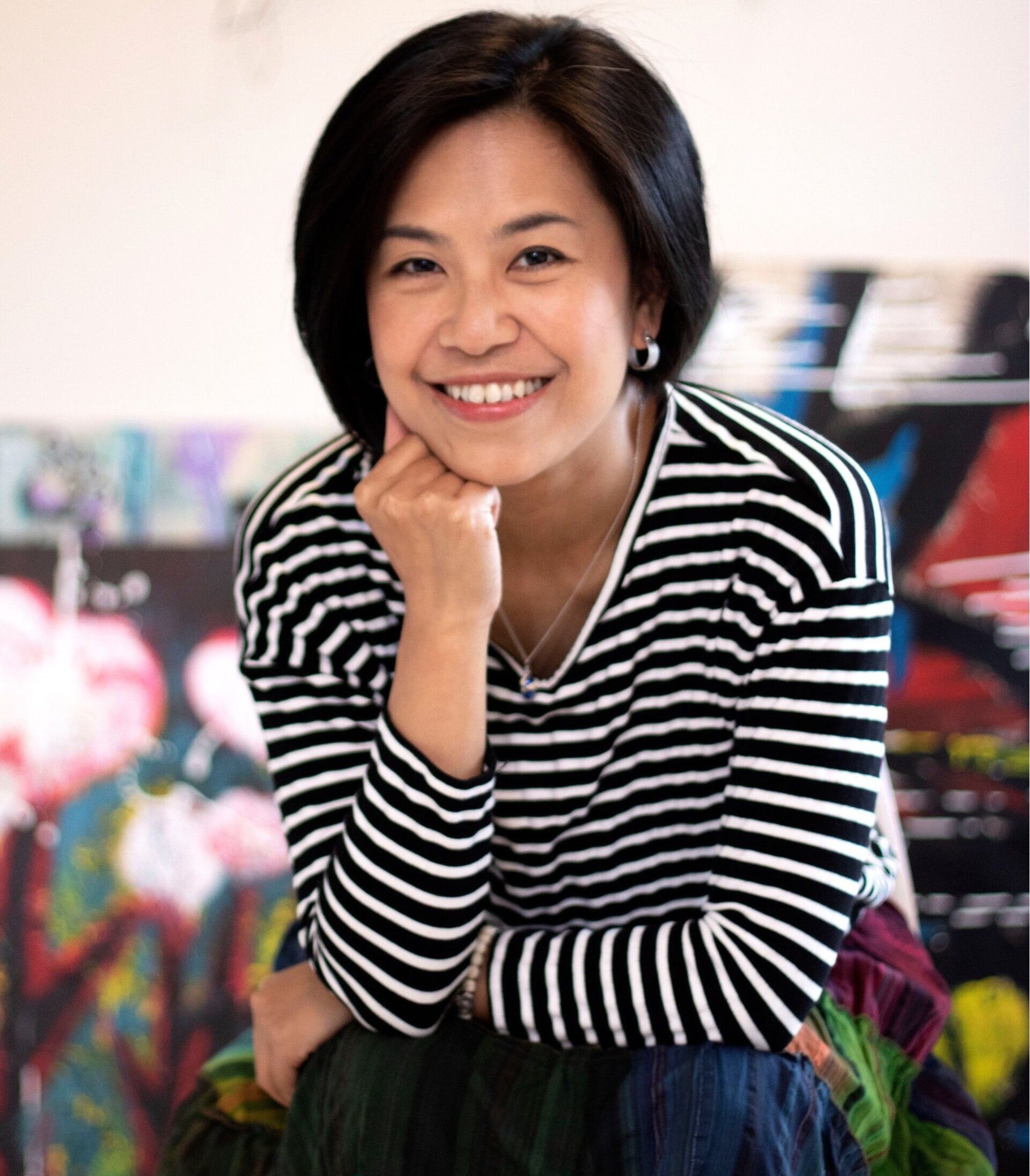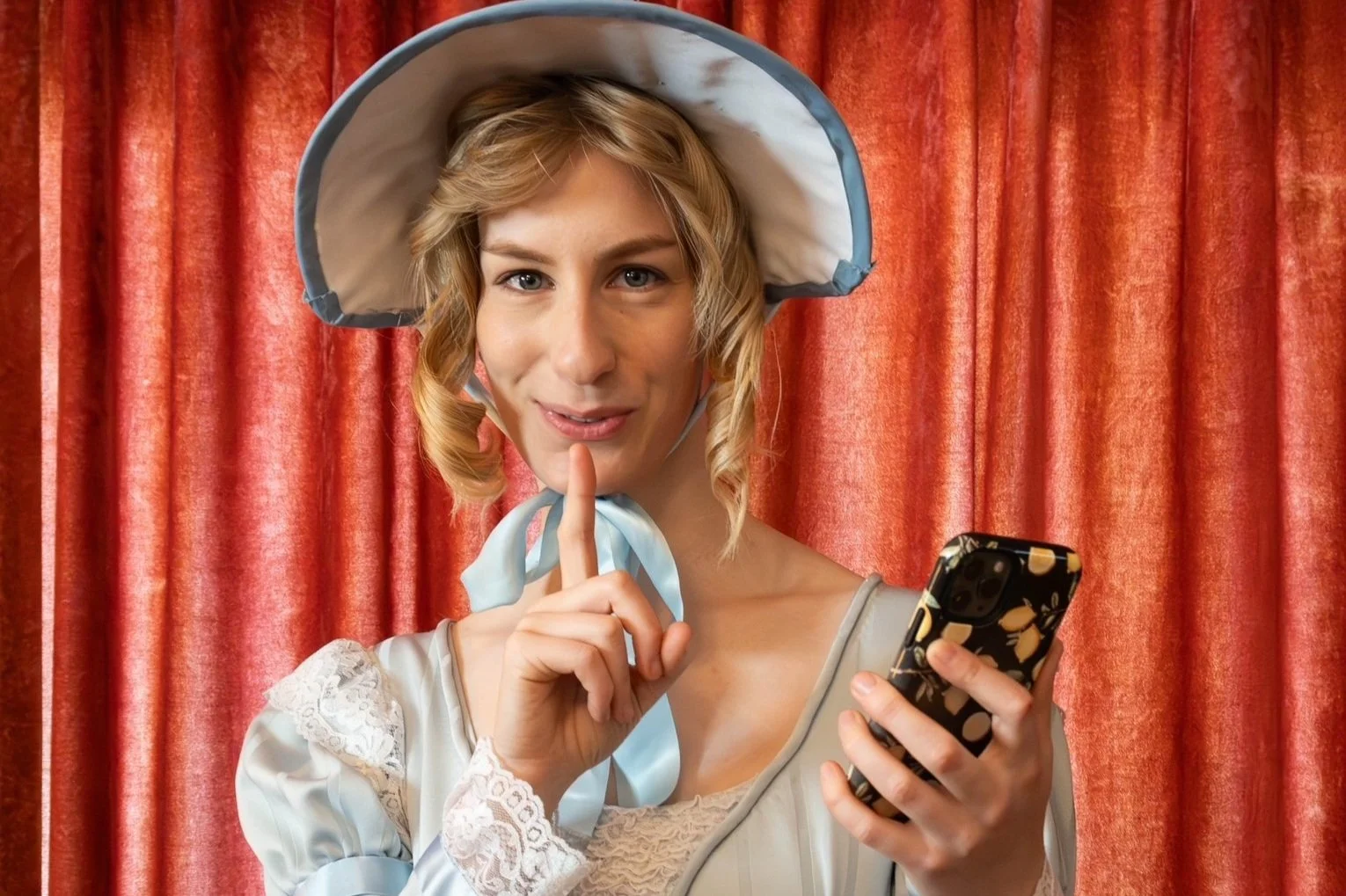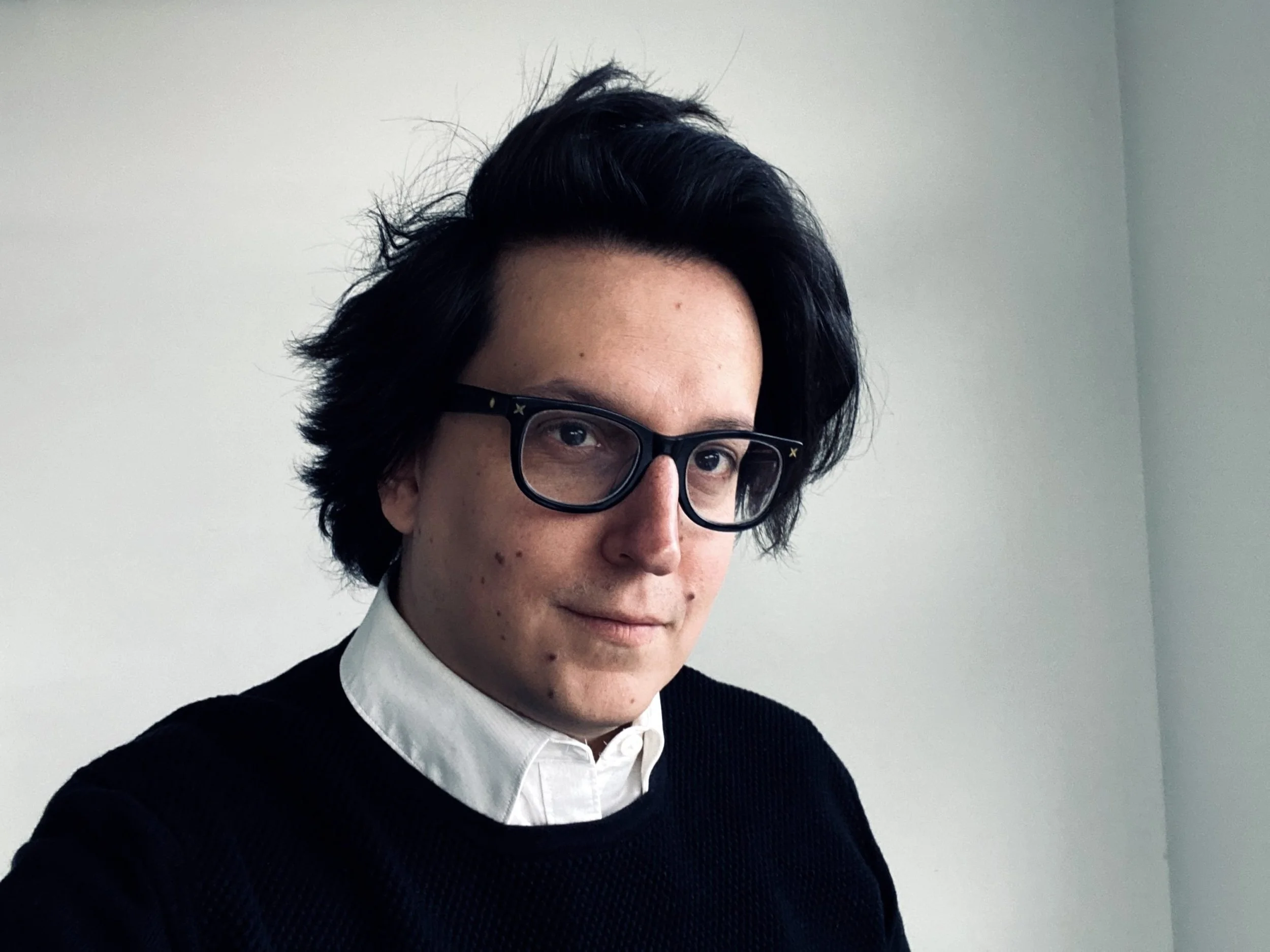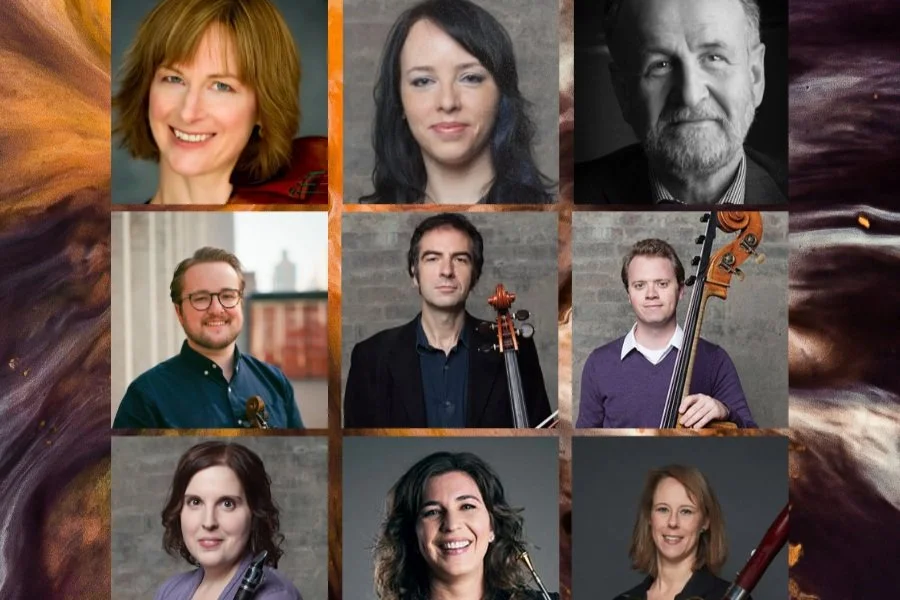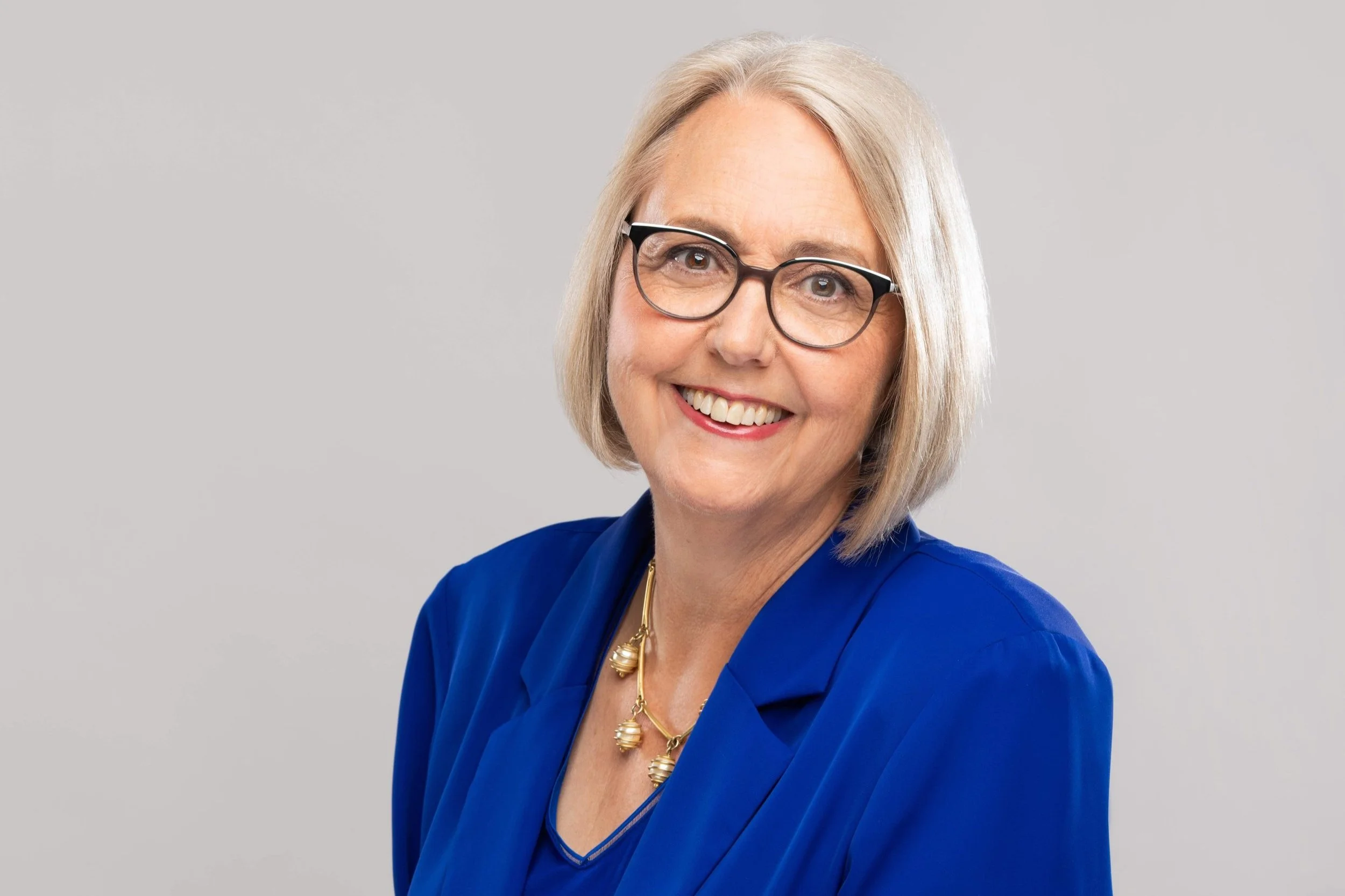From dance jams to film screenings, BC Culture Days' cultural ambassadors bring people together
Local emerging artists help people reconnect with their communities during the month-long festival
Illustrator and pictured-book author Jeni Chen is one of nine cultural ambassadors at this year’s BC Culture Days.
BC Culture Days runs September 24 to October 24 for free in person and online.
BC CULTURE DAYS is all about getting people more connected to their communities through the arts, and one way the event is making that happen this year is through RE:CONNECT, its cultural ambassador program.
Nine emerging artists from a range of disciplines, including film, dance, theatre, and visual arts, will host a free interactive event open to the public throughout the month-long fest.
Stir connected with five of these local up-and-coming creatives to hear what they have in store and what the focus on arts amid the fourth wave means to them.
Alyssa Amarshi
Jam Out! With Her Tribal Roots
Alyssa Amarshi is a dancer, choreographer, and founder of the interdisciplinary collective Her Tribal Roots. Having parents from Tanzania and being of Indo-Ismaili heritage, she has always been interested in diverse types of cultural expression.
Amarshi’s love of dance goes back to her childhood—“there is video footage somewhere of me at eight and nine years old dancing extremely off-beat to AR Rahman’ s Bollywood Song ‘Chaiyya Chaiyya’ and Christina Aguilera’s ‘Genie in a Bottle’,” she says. In high school, she was exposed to dancehall, soca, reggaeton, hip hop, and R&B. Her fondness for the form deepened from there.
“I think the time that I really discovered the full extent of my passion and my desire to choose dance in a more intentional way was a few years later when I watched Sister Act II for the first time, around the same time I was reading The Alchemist by Paulo Coelho,” Amarshi says. “There was a scene where Whoopi Goldberg’s character, Sister Mary Clarence, gives Lauryn Hill’s character, Rita, the book Letters to a Young Poet by Rainer Maria Rilke. Sister Mary Clarence says, ‘If you wake up in the morning, and you can’t think anything but singing, then you should be a singer, girl.’ I know it is corny, but I distinctly remember waking up the next morning in tears, thinking about dance.
“Finishing The Alchemist soon after with the theme of ‘finding your personal legend’. it was cemented in my heart that I needed to express through movement,” she shares. “To this day, I love the embodiment of expressing through dance. I love that it encapsulates feelings I do not know how to express with words. I love how it brings so much damn joy and connection to communities. I love dance. I need to dance.”
In her preteens she worked with Bollywood; in high school, friends from the West Indies introduced her to dancehall and STEP (a form of percussive dance), which she continued to explore while completing her BA in Psychology at McGill University.
On the West Coast, Amarshi trained with SOULdiers Dance Company and Ketch Di Vybz, going on to perform with artists such as A Tribe Called Red, Kimmortal, and Nanya Music. A choreographer and creative director, she created community-based interdisciplinary play sessions, Jungle Gym Drop-Ins, while her vision with Her Tribal Roots is to create more opportunities for artistic expression of diversity, inclusion, and resilience.
Alyssa Amarshi is the founder of Her Tribal Roots.
Being a cultural ambassador for BC Culture Days has led to what Amarshi calls contrast.
“While I am grateful beyond expression to be resourced to make art and connect with communities, I also recognize the engrained colonialism and the standards that are present in all organizations,” she notes. “The past year, I have been extremely lucky to create in a super grassroots way with my friends. Because of this, we were able to slow down. We could put process over product. We could put the highest value in our emotional and physical well-being. We could put rest over making deadlines. Being an ambassador definitely puts contrast into these values as there is a responsibility for deadlines and productivity in a very specific way. I understand that the deadlines and productivity are necessary in the way that our society creates events and goes about marketing, and I am also noticing my own desire for more emergence and gentleness in the way I wish things could be run. I would also like to acknowledge how amazing the Culture Days team has been with changes and communication. The other ambassadors are truly amazing and I am so stoked to see their projects.
“However, I also have feelings of contrast knowing that I am an ambassador for ‘British Columbia’ which is a colonial entity on Coast Salish (and specific to my region – Sḵwx̱wú7mesh (Squamish), Stó:lō and Səl̓ílwətaʔ/Selilwitulh (Tsleil-Waututh) and xʷməθkʷəy̓əm (Musqueam) Nations’) land. As a second-generation immigrant settler who does desire Indigenous stewardship and ‘land back’ I do feel simultaneous contrast and gratitude in this way too.”
Jam Out! With Her Tribal Roots takes place at Trout Lake on September 27 at 5:30 pm.
The collective will perform an excerpt of its interdisciplinary piece “Living With,” which explores the (inter)connections of self and other, largely informed by people’s relationship to the Earth. Participants will then be invited to join the artists in their creative process of dancing, singing, and drumming.
“We will facilitate movement, vocal, and percussive games and exercises to unlock participants’ creativity and expression through mutualism and collaboration,” Amarshi says. “For example, one movement game that we use in our own creative process is choreography where everyone puts in a move. Before we get started, we will lead participants in some grooves and movement options just to get our bodies warm. Then we ask everyone who is comfortable to put in a movement of their choice. You do not have to have any experience at all, and your movement does not have to be anything specific or professional. After everyone puts in a move, we put all the movements together to come up with a collective choreography.
“The workshop will end with a soul-nourishing, communal dance and music jam,” she says. “You can think of this jam like a really open-ended human loop pedal where everyone can put in a vocal or percussive sound or movement. Everyone is welcome to participate as much or as little feels comfortable for them; whether engaging in some things, all the things, or simply holding space by witnessing the magic.”
Valeria Ascolese
Where Do We Go From Here? Conversations about the Future of Performance
Valeria Ascolese is a Peruvian-Italian multidisciplinary artist and educator born in Lima. A graduate of Capilano University, she has collaborated with several local theatre companies, including Electric Company Theatre, Rumble, Bard on the Beach, rice&beans theatre, and Pacific Theatre while simultaneously working in film and TV. She is also the communications and outreach coordinator at the Canadian Latinx Theatre Artist Coalition (CALTAC), which advocates for and connects Latinx theatre artists in Canada.
Multidisciplinary artist Valeria Ascolese is communications and outreach coordinator at the Canadian Latinx Theatre Artist Coalition
“I have a profound passion for storytelling in all its forms,” Ascolese says. “I can't pinpoint exactly the time and place where I discovered that I wanted to be a storyteller, because I think it's something that I carried with me all along—as cheesy as that sounds. The importance of sharing our stories is sacred to me.
“As someone who grew up feeling displaced, bouncing between different cultures and languages, and in constant search of the feeling of ‘home’, theatre is the embodiment of unity to me,” she explains. “Theatre allows us to sit down and experience something together. Theatre is a direct reflection of who we are as human beings in this world. It shocks us, it comforts us, it helps us understand other perspectives, it whispers gently: ‘Keep going. You are not alone.’ Hours pass and the world spins, but all that matters is what you are making and experiencing together. Theatre helped me find my voice, and I will always be in debt to it because of this.
Following the impact that the pandemic had on performing arts sector, Ascolese found herself inspired by the work being done in the local arts community, notably by artists.around her age.
“As artists, early on in our careers, we are often not given the platform to present the work we're doing, so I wanted to create a space for that as a BC Culture Days Ambassador,” Ascolese says. “Where Do We Go From Here? Conversations about the Future of Performance. is an exploration of the impact and aftermath of the COVID-19 pandemic on the artistic performance sector seen through the eyes of emerging artists based in British Columbia.
“Over the course of six conversations with different emerging artists currently professionally working in various disciplines, we will unpack and engage in open discourse about our works-in-progress, what it's like to be an emerging artist in today’s world, making and holding space in the industry for racialized Black, Indigenous, and People of Colour artists, and the future we envision for our generation in the arts,” she says.
August Bramhoff
Our First Conversation: Digital Art Show
August Bramhoff is a photographer, visual artist, and arts-inclusivity advocate. In 2013, they experienced a traumatic brain injury, embarking on a process of re-learning and of adapting to being a working artist living with a disability.
August Bramhoff is the curator of Our First Conversation, an online visual-art exhibition.
They are the curator of Our First Conversation, an online exhibition featuring visual artworks by B.C. artists, focusing on those from underserved communities. The show explores each artist's experiences living and making art during the pandemic, and what their thoughts and hopes are for the future. Accessibility was paramount in the curation. Visitors can expect a simple black-on-white text format to assist those navigating visual challenges, and all images will be supported with written captions to help people using an assisted reading device.
Prior to working on Our First Conversation, Bramhoff focused on film photography.
“I have been shooting for about 20 years,” Bramhoff says. “I love working with film for many reasons; one that stands out for me is the process. From conceptualizing the idea, recognizing the shot, composing the scene, and developing the image to editing the result, that is the creation behind each frame. When you break it down like this, it's a powerful process. It can also be very meditative. Film is also one of the few photographic mediums that doesn't trigger light sensitivity issues, for the most part, for me, so it's been a friend on my journey learning to live and practise art with a disability.”
Bramhoff sees strengthening ties between community and local artists as a vital component to the quality of enjoyment of life.
“Every artist faces challenges in all aspects of their creative practice, from finding the motivation and energy to produce work to having it shown in public exhibition,” Bramhoff says. “As an artist living with a disability, I have faced these struggles, along with navigating my own health needs along with being taken seriously as an artist. My motivation has been to provide an opportunity for artists who may have faced similar difficulties to be part of BC Culture Days and gain public recognition for their whole-hearted efforts.”
Jeni Chen (pictured at top)
Jeni Chen is an artist, picture-book author, and illustrator. Born in Taiwan, she moved to Canada with her family as a teen. Although she has always loved to draw, she stopped when she decided to pursue a more “practical” career in science. Things changed once she became a mom.
“When I was a kid, my mom would take me on her boring shopping trips,” Chen tells Stir. “I remember bringing my paper and pencil crayons with me so I could draw. In school, I would draw stories and pictures for teachers and classmates. After my son was born, I started drawing comics about the funny things he said or did and shared them with my family. Drawing is a type of entertainment for me and the people around me.”
Chen was having so much fun that she went on to obtain a fine art certificate from Emily Carr University of Art + Design.
Since then, she has been selected for several public art programs in Richmond and the upcoming Vancouver Comic Arts Festival.
Her debut picture book, about a boy who loves to paint but loses the colour in his life when he stops, has been acquired by a U.S. publisher and will be released in spring 2022.
“After watching the most watched TED Talk of all Time, Do Schools Kill Creativity? [by Sir Ken Robinson], I realized why I stopped drawing after high school,” Chen says. “It’s because our school and economic systems value academics more than the creative arts. It wasn’t until after my son was born that I realized how much I missed drawing. As a mom and volunteer with school arts program at the Richmond Art Gallery, I see how creative and brilliant kids are. I hope we can nurture their brilliance and they will never lose their spark. That’s why I want to participate in BC Culture Days’ celebration of arts and creativity, especially for the younger generations.”
For her BC Culture Days program, Art Journaling for Beginners, Chen has produced a video in which she shares several techniques that can use to start their own art journal with materials easily accessible or found around the house. She will demonstrate step-by-step how to create a self-portrait or personal symbol that inspired people and brings you joy. On September 25 from 1 to 3 pm, Chen will be art journaling at the plaza outside of the Richmond Cultural Centre.
Carter Kirilenko
Climate Solutions Film Festival
Carter Kirilenko is a documentary filmmaker, director, and producer who has lived on four continents and whose work focuses on environmental issues, notably the intersection between climate change and human health.
He earned an Honours Bachelor’s degree in Environmental Studies from the University of Waterloo, where he also completed a research term at National University of Singapore’s Institute of Systems Science. His first documentary, In Your Palm, which revealed the link between Indonesia’s haze crisis and the expansion of palm oil, received awards at festivals across North America, including Best International Film at Oregon Documentary Film Festival. His latest film, Leuser: The Last Place on Earth, received the Peoples Choice Award at VIMFF and follows a team of rangers that are protecting one of the most biodiverse regions on the planet.
Carter Kirilenko hosts Climate Solutions Film Festival during BC Culture Days.
The fascination with film is in his genes.
“My family has a history in the film industry, and my father has been working on films since he was young,” Kirilenko tells Stir. “One of my first jobs out of high school was working as a grip on film sets in Vancouver. After going to school for environmental studies, I realized that I wanted to blend my passion for conservation with my filmmaking roots to create films that build awareness on climate issues and inspire folks to develop a greater appreciation for the natural world.
“My favourite part about filmmaking will always be the creative process,” he says. “It keeps me on my toes and I’m always learning something new from my team. There are a million moving parts to making a film, and it requires a sense of presence and trust amongst your team that things will work out.”
Many of his past films have been made in remote regions of the world—and with the onset of the pandemic, Kirilenko realized the importance of seeking out stories that are within his own community.
During BC Culture Days, Kirilenko is hosting the online Climate Solutions Film Festival, which is a showcase of two films he has created over the past six months that look at community-driven solutions to the climate crisis. Salmon Parks, coproduced by Canadian Parks and Wilderness Society BC, is about an Indigenous-led plan to restore critical salmon habitat in Nuu-Chah-Nulth territory. (An interactive panel session with CPWSBC follows.) Urban Oasis follows the story of two urban farmers in Vancouver's Strathcona Community Garden as they rediscover the age-old practice of community gardening to restore their connection with the land and their food.
For more information about BC Culture Days 2021 cultural ambassadors, see here.



